Despite being very similar, these two instruments have very different roles in the musical world. Hopefully this article will help you to decide between them. When you look at the main differences between the flute and recorder you’ll find pros and cons for each.
Flutes and recorders in history
These instruments are often easily confused! This is because for a long time they were both called flutes. Throughout the 17th and 18th century the word flute was used to describe both, which must have been very confusing!
Eventually transverse or german flute was used to describe our modern day flute, whereas the recorder was sometimes called flute douce or an english flute. I’m definitely relieved that the names are standardised now so we have finally put an end to this confusion!
Both instruments have a long history as archeologists have found bone remains which they believe were used as wind instruments as long as 35,000 years ago. This makes them some of the oldest around!
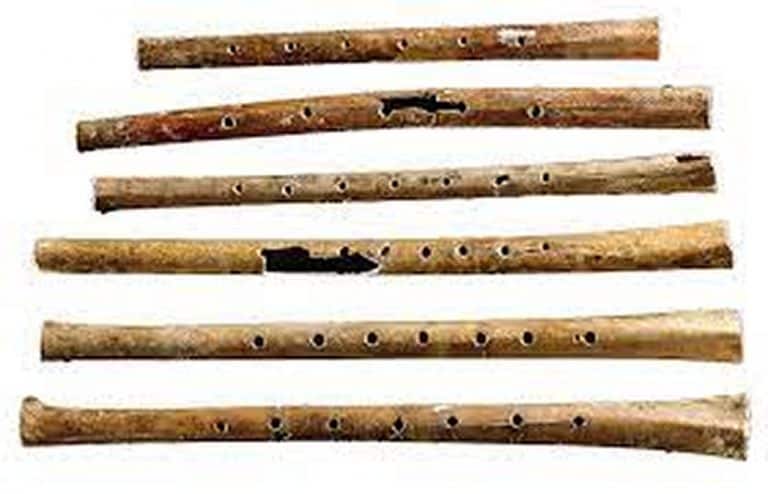
Flutes and recorders were both popular with composers in the medieval, renaissance and baroque times and have lots of fantastic music written for them from this time. Vivaldi wrote many concertos and J.S Bach also wrote for both.
The flute was used in orchestras throughout the classical and romantic period, although was not used as a solo instrument as much as in earlier times. There is a wide range of music by modern composers for flute, encouraged by the use of the new boehm system.
The recorder was neglected through the classical and romantic period by most composers and was removed from the standard woodwind section of the orchestra. However the revival of historical performance and modern composers writing for recorder again means that it is now popular again.
Uses of the flute and recorder in different types of music
The modern flute is a member of the woodwind family and plays in a standard modern symphony orchestra. It has been used from the baroque period right through to present day with our modern instrument. It is also used in wind bands and woodwind quintets.
There is a wealth of music for flute and piano, and it is also often paired with the harp too. You can also form choirs with just flutes. They usually include piccolos (covering the high pitches), alto and bass along with the standard C flute.
As well as classical music, flutes are often found in jazz and folk music. Recently they have also become popular in pop and rap music. American pop artist Lizzo is famous for playing the flute during her concerts.
Modern composers often use extended techniques when writing new music for the flute, making use of the boehm fingering system and open holes.
In medieval times, the recorder was often played alongside other popular instruments such as Sackbutts and Viols as well as ensembles of many recorders called Consorts.
Baroque composers used the recorder in large ensembles and also as a virtuoso soloist.
As a modern wind instrument, the recorder is often used by film composers to set the scene to an earlier time, particularly around the medieval times. It can also be used to show a rustic or old fashioned setting. Films with fantastic recorder writing include some of the later Harry Potter films.
Composers are also beginning to write solo music for the recorder again, as well as including it in various ensembles. Often the recorder is used in unusual ways including a range of extended techniques.
Flute v recorder
- They are both wind family members
- They both come in a range of sizes from tiny to not so tiny
- They are both fairly affordable to buy compared to other members of the woodwind family
- They are both used by composers to represent birds or birdsong.
- You can play early music on the baroque recorder and baroque flute (sometimes called traverso). These instruments are all lower than standard modern pitch.
- You have to spend time learning how to make a sound on the flute at first whereas most people can make a sound on the recorder straight away.
- Most flutes are made from metal, recorders are made from wood, plastic or resin.
- Recorders only have a few (if any) keys as most notes are played by covering the open hole keys. Flutes have lots of keys to help the player cover all the tone holes needed to create pitches on the flute.
- There are different fingerings for most sharps and flats as well as some natural notes.
- There are more members of the recorder family. The lowest is the bass but there are many others from the tenor recorders right up to the garklein, able to produce the higher notes.
Flute v recorder playability
If we want to get competitive then we should really have a pros and cons list for each….
- You can join an orchestra!
- It is one of the most affordable of the woodwind family, especially when you consider that you don't have to buy reeds like all other orchestral woodwind family members.
- You can buy instruments made out of beautiful metals such as silver, gold and platinum.
- You get to play beautiful tunes as you are one of the highest instruments in most ensembles.
- Flute is a popular instrument so it won't be hard to find a partner to practice duets with or a flute ensemble to join in your local area.
- You can play a wooden or metal flute to suit your musical tastes.
Flute Cons:
- As the flute is such a popular instrument it can be hard to get accepted into ensembles such as youth orchestras as places can be competitive. It is even more challenging to succeed as a professional flautist!
- Sometimes flute players suffer with shoulder or back pain if they perform a lot as your body is not so balanced when you play the flute. Good posture advice from a teacher can help fix this though.
- It can be tricky to get a sound when you first start - you have to learn how to make a sound by finding the correct position with your lips.
- You have to wait until you're big enough - not just until your arms are long enough but also when you have big enough lungs to make a good tone.
- You can start learning when you are very small - great for keen budding musicians who can't wait to start making music. They are easier to play than most instruments.
- You can get different ranges of recorders in all shapes and sizes - this means you can choose an instrument which fits your personality and what kind of music you want to perform. Some common sizes include the alto recorder and soprano recorder.
- Recorders can be very affordable so great for budget conscious musicians.
- Plastic recorders are pretty indestructible - great for young players who are not always the most careful with instruments.
- You can play in baroque music and period ensembles - recorders are a valued member of this ensemble so it is a great choice if you are passionate about this music.
- You can make a sound as soon as you start playing - it might not be the most beautiful sound but it will be there!
Recorder Cons:
- It can be tricky to find an ensemble to play with as not all orchestras will have places for recorders.
- Recorders are not the loudest instrument so it can be tricky to be heard if you are competing with other loud instruments.
- Some people think the recorder is only for children and not a ‘serious’ instrument. Of course if you decide to play the recorder then it is your job to prove these people wrong!
How a flute is played
Making a sound on the flute is just like blowing across a glass bottle. The trick is to keep your lips relaxed and in neutral shape. Then you blow through a tiny open hole between your lips. It can sometimes help to imagine you are saying the word ‘pu’ to find the right shape with your lips.
Try making a noise with just your head joint first. Cover the end of the head joint with one hand and put the flute in the middle of your lips resting just under your bottom lip. Make sure the hole on the lip plate is pointing up towards the ceiling.
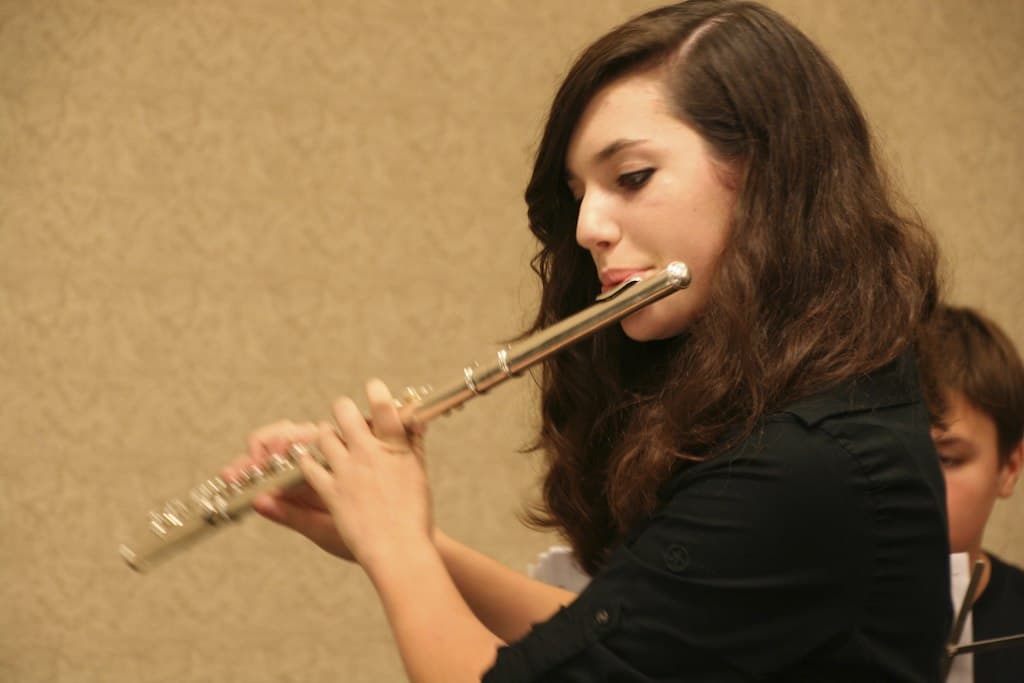
Once you can make a sound on the flute you can play different pitches by pushing and releasing the keys. As a general rule, the lower the note you want, the more keys you press down.
Breathing well is very important for flute players as you need a lot of air to make a good sound. The better your breathing is, the easier it is to play.
How a recorder is played
Like all wind instruments, recorder players use their breath to produce sound. The recorder requires a gentle blow to get a beautiful mellow note. If you blow too hard then you will get a harsh sound or it might squeak! Think about blowing your air in a constant, even stream over a long note. Try without any fingers over the holes first.
You can change notes on the recorder by covering different finger holes. As a general rule, the more holes you cover, the lower the pitch will be.
It is important to remember that your left hand should be at the top of the recorder, this can feel unnatural for most (right handed) people. Don’t worry, you soon get used to it!
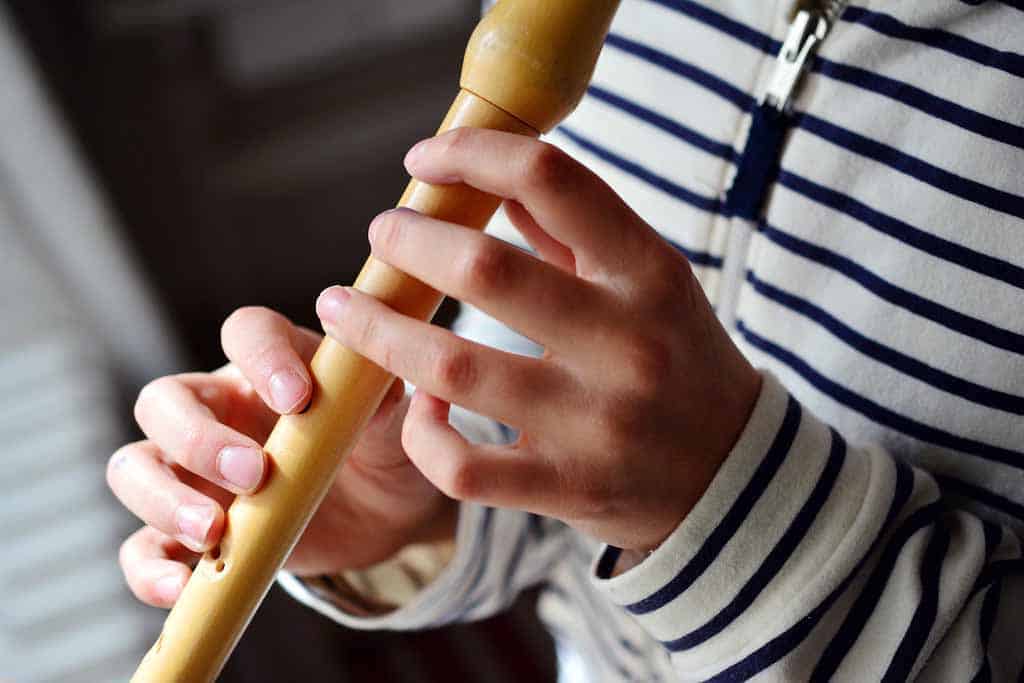
Which is easier to learn: flute or recorder?
The flute is definitely more difficult to start with as it can take a few lessons to make any sound at all. It can also be harder to hold as you have to hold it out to the side instead of in front of you.
However I do think it can be more difficult to make a beautiful, clear note on the recorder as it can be easy to squeak when you are a beginner.
So both instruments have their challenges….
Which is best for a child to learn?
The recorder is the best instrument for young children up to around 7 years old. You can play a note on the recorder straight away, so they won’t be discouraged which should help with persuading them to practice.
You can buy very affordable recorders for beginners made out of plastic or resin, but wood is best. The recorder I recommend is this one.
Recorders are often used to introduce small children to playing an instrument. I started learning recorder when I was 6 and it was a great introduction to reading music and improving finger coordination. Often children will be given the chance to play recorder in group lessons at school.
However if you are looking for an instrument for an older child to begin then the flute is also a great option! It is easier to find ensembles for young players to be involved with a standard orchestral instrument. With the recorder it can sometimes be difficult to find a good range of ensembles to play in.
Flutes also have a wider range of repertoire to choose from, particularly more pop and jazz tunes which can be a big selling point for young players.
If you’re looking for a flute, I’d recommend this Yamaha:
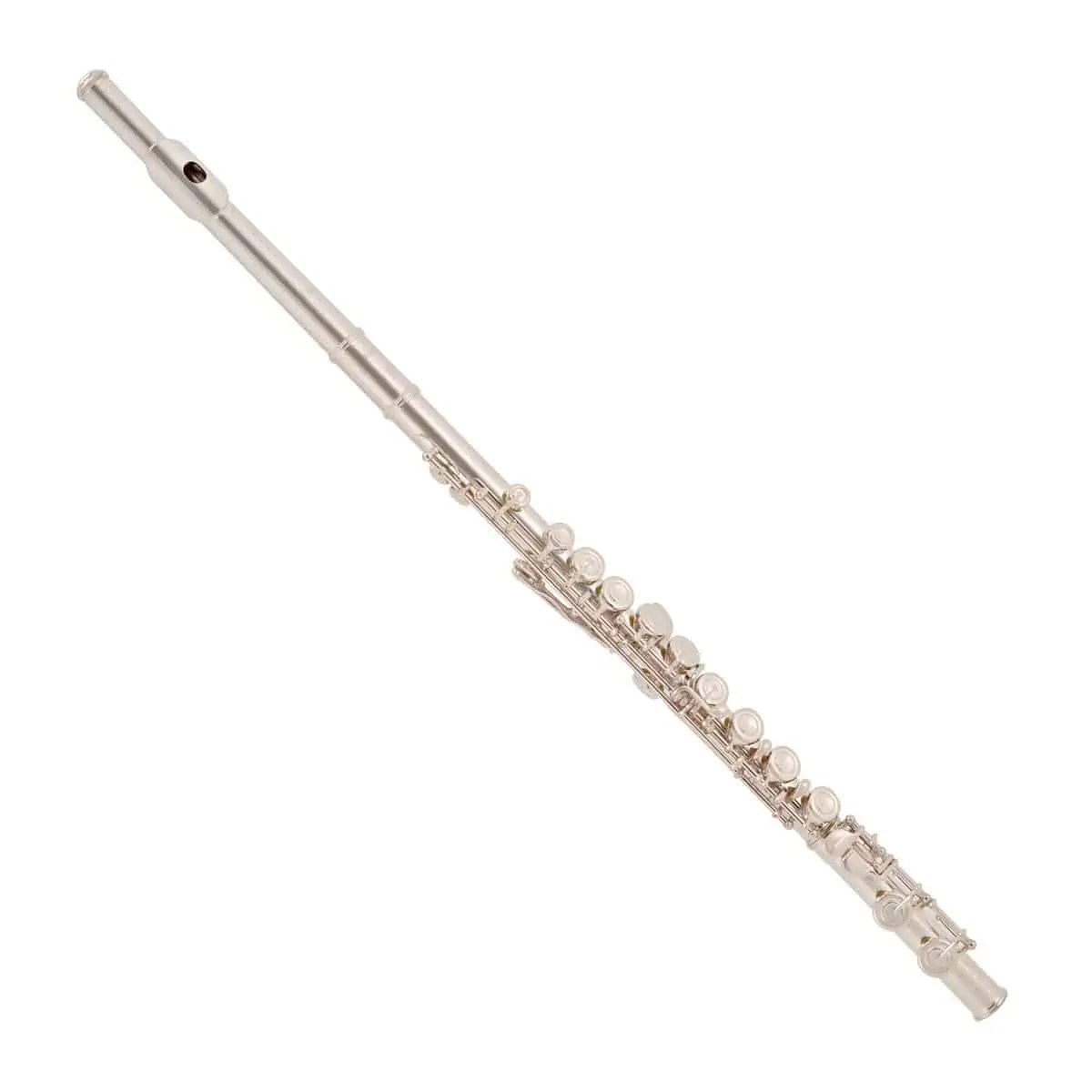
COMES WITH: Text
FEATURES: Silver plated throughout which offers great sound quality for a beginner instrument
Yamaha YFL212
When you check the price above, you’ll see there are loads of great places to buy this item. Our personal favorite is Gear4music.
It is the largest music retailer in the UK and fast becoming the most respected online music shop in the US too. Their customer service is excellent, they have competitive prices, really fast shipping, and usually have the longest guarantee.
Most professional musicians use Gear4music, so there is no reason why you shouldn’t too!
- Good quality
- Affordable Price
- None
The professional musician who wrote this article combined many things,
from the product build, manufacturer’s reputation through to feedback
from other users, to create our famous TedScore™.
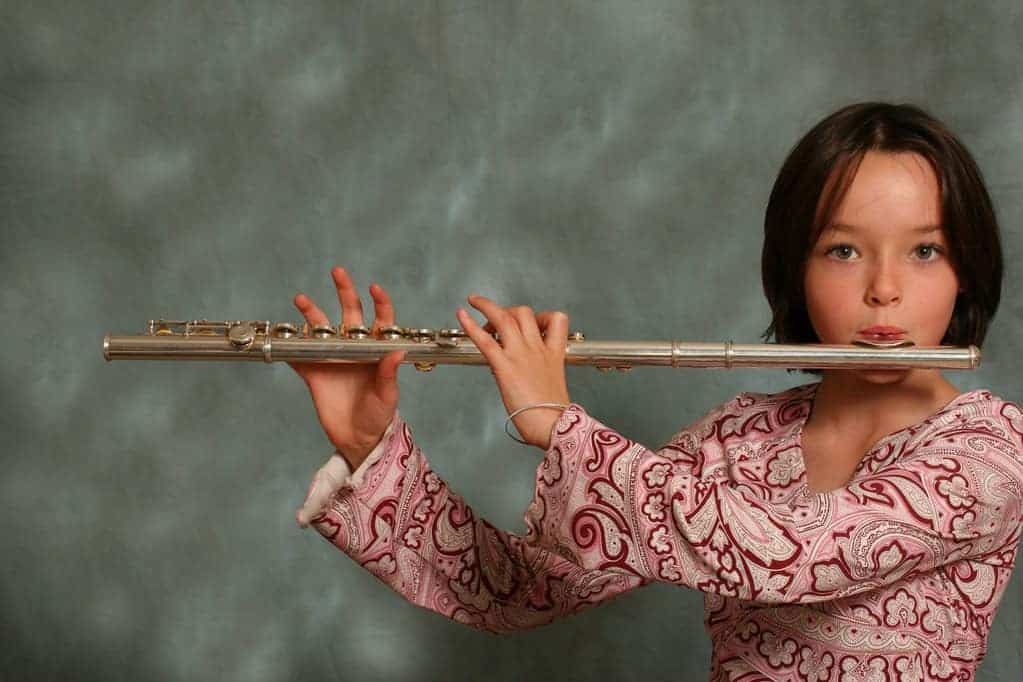
Flute vs Recorder
Summary
We’ve compared two very common instruments. Both are very popular with beginners and often learnt by children due to their small size.
Recorders have a bit of a reputation problem as some people think of them as only instruments for children but this is definitely not true. They have so much wonderful music written for them!
Flutes are very popular because they can be played in many different styles of music, including jazz and folk, and Lizzo has made them even more popular recently!
Although both instruments are fantastic options, my personal favourite is the flute as you have a much wider range of ensembles and music to play with. In my opinion playing with others is what music is all about so this has to be the winner for me. Not that I’m biased or anything as a flute player myself…
FAQ's
Yes definitely. There are many fantastic professional recorder players out there with amazing careers.
All instruments need practice to sound good, however the recorder is light and it is easy to play a note, so it is a great one to start this,
You are able to play most flute music on the recorder. Sometimes it might go a little too high though, so it’s better to play music especially written for your instrument.
In my opinion recorder is easier to learn, because it’s easier to hold and is quicker to make a sound for most people.
Very similar! There are just a few changes between the flute, recorder and the fife for the first octave. The biggest difference is with sharp and flat fingerings. The flute has more keys, so you don’t need to use half hole fingerings.



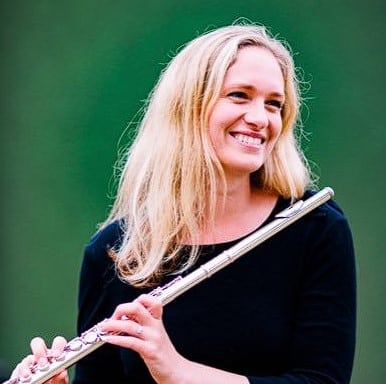







Just started my journey learning the flute after doodling around with a recorder for a few months. This article hits the spot! I was always curious about the differences and how each instrument plays into different types of music. I got to say, though, learning to control my breath for the flute has been a challenge but a fun one. Anyone else felt like they were embarking on a quest moving from the recorder to the flute?
Interesting points all around. Flute and recorder each have their place, I think. Love how you broke down how each is played. Keeps it real for someone like me who’s more about listening than playing. Wouldn’t mind giving one a shot someday.
While the comparison between the flute and recorder regarding playability and ease of learning is insightful, I’d argue that the recorder’s simplicity offers a deceptive challenge. Mastering its subtle breath control for dynamics and tone takes considerable skill, often underestimated.
So we’re still pretending the recorder is a legit instrument and not just a torture device for parents? I mean, sure, it’s ‘easy to play’, but at what cost? Anyone actually made it to playing something that doesn’t sound like a duck in distress? Asking for a friend.
this article is dope! makes me wanna learn both flute and recorder. seems like they have their own cool aspects.
In your section on the history of flutes and recorders, you’ve made some compelling points. However, I believe there was a missed opportunity to delve into the Baroque period’s intricate use of recorders, which significantly shaped its evolution. Would you consider exploring this in a follow-up piece?
never tried wind instruments before, always thought they were kinda intimidating. this article breaks it down nice & easy though. thinking the recorder might be a chill place to start, then maybe move to flute. anyone else gone this route?
i was wondering if anyone thinks that starting with a recorder is best for kids before they jump into playing the flute? my kiddo is super interested in music and I read that the recorder might be easier to start with but I’m not sure if it’s really going to help with flute playing later on. has anyone gone through this transition smoothly? would love some insights or personal experiences!
Hey TaraLynn21, my daughter started on the recorder in her school’s music program and then picked up the flute a year later. It really did seem to help her get a head start. Plus, she enjoyed being able to play simple songs pretty quickly on the recorder, which was great for her confidence.
Absolutely, starting with a recorder can be incredibly beneficial for young children. It teaches them the fundamentals of music, breath control, and finger placement which are all transferable skills when they move on to the flute. I’ve seen many students make this transition smoothly and continue to excel in their musical journey.
Regarding the choice for children to learn, is there a significant cost difference in starting a child on the flute vs. the recorder? Concerned about making an investment before knowing if my child will stick with it.
Absolutely loved the part about using flutes and recorders in different types of music. It’s fascinating how versatile these instruments are, spanning from classical symphonies to modern pop tracks. Makes me excited to delve deeper into learning one of them.